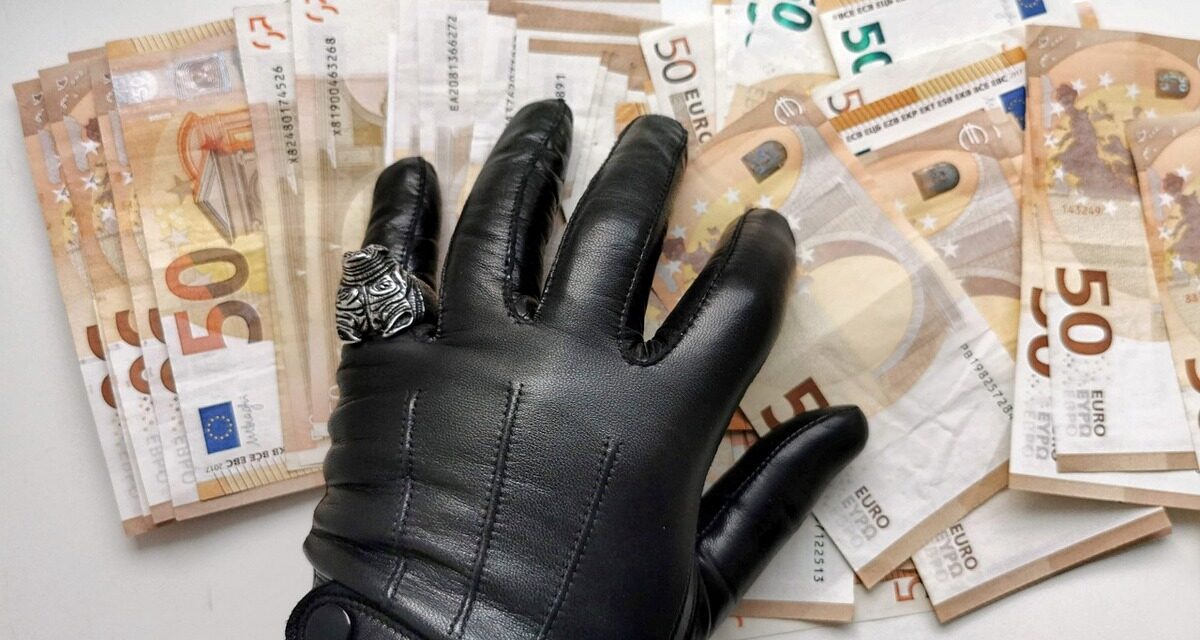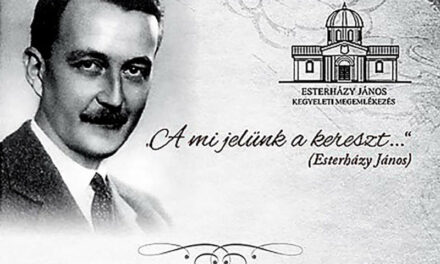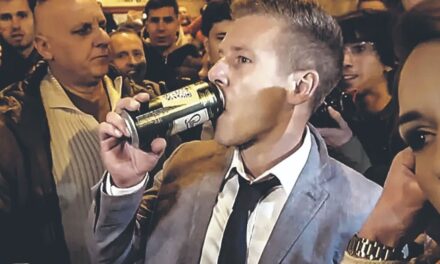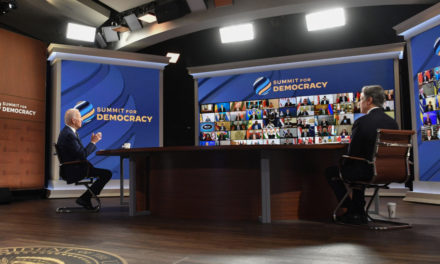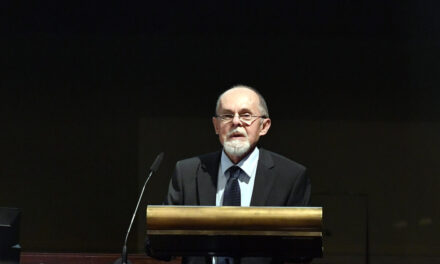According to the latest report of the European Court of Auditors (hereafter: the Court of Auditors), there is in vain a central register that should in principle be used by the European Commission (hereafter: EC), the European Parliament (hereafter: EP) and the Council, thus the EU organizations they treat you casually. An even bigger problem is that lobbyists deliberately avoid it, so they run amok practically freely, which can lead to corruption. The EC, the EP and the Council have also joined the transparency register, but the lobbyists avoid this.
The report states that the registry is regularly circumvented by lobbyists active in the various institutions of the European Union, which can lead to unlawful influence, unfair competition and even corruption.
Although it "contains useful information about lobbying, it does not achieve the desired effect", stated Jorg Kristijan Petrovic, auditor of the Audit Office, when the report was made public.
In 2021, the three institutions agreed that registration is a necessary prerequisite for lobbyists to carry out certain activities. However, this agreement does not set minimum requirements for implementation, but instead allows institutions to apply it differently, for example by loosely defining which lobbying activities require this registration or how lobbyists can contact the institutions' members and staff.
A good example of this loophole and its exploitation is Qatargate, when an identified non-governmental organization was not registered, and in addition, this organization was one of the hosts of a conference in the European Parliament in June 2022.
According to critics, the activities of lobbyists are currently not transparent, so the incomplete regulation makes it easier to commit corruption crimes.
A number of other legal concerns are also raised, as transparency and publicity, and thereby also the principle of the rule of law, are violated. In addition, transparency is one of the most important principles of the EU, according to which the EU is obliged to publish public information related to political decision-making and the use of public funds, and to enforce the principle of freedom of information.
According to Article 10 of the Treaty on the European Union (hereinafter: TEU), decisions must be made as publicly as possible and at a level as close as possible to citizens. Based on Article 11 EUSZ, the EU institutions must ensure that citizens and advocacy organizations can express their opinions on any activity of the Union and discuss them publicly.
Pursuant to Article 15 of the Treaty on the Functioning of the European Union (hereinafter: TFEU), the EU institutions must act in accordance with the principle of openness and must ensure that any natural or legal person who resides in one of the Member States or has its seat according to the founding document has access to EU documents.
The rule of law is one of the core values of the EU, which is essential for its functioning, its concept includes transparency, accountability, democratic and pluralistic legislative procedure, effective judicial protection provided by independent and impartial courts, the right to justice, and the separation of powers.
The fact that lobbyists are free to "run riot" in the Union violates the principle of the rule of law. The Court of Auditors criticized the fact that lobbyists should only be registered to meet with senior staff and only have to report on pre-scheduled meetings. There is no need to keep official records of:
- about spontaneous meetings,
- about e-mail exchanges,
- about unplanned phone calls,
- lobbyists do not need to register when meeting with staff below the director general level.
According to the Court of Auditors, there is a risk that NGOs funded by third parties do not disclose their funding sources, claiming that they only represent their own interests or the collective interests of their members – this is the case for one third of registered NGOs.
Since its creation in 2012, the number of lobbyists in the EU transparency register has increased from 5,500 to around 12,500 by 2024.
Among the better-known EU scandals related to lobbying, it can be mentioned that in February 2023, the corruption case of Henrik Hololei, Director General of the EC's Directorate-General for Mobility and Transport, became public. For years, Hololei traveled on Qatar Airways flights at the expense of the Qatari state, while his director general was negotiating the terms of the Qatari airline's entry into the European market. The trips of competition inspectors of the European Union were regularly paid for by lobbyists of large global companies under EU competition law proceedings. Since the European Court of Justice cut the competition control unit's travel budget from 880,000 euros (338 million forints) to 560,000 euros (215 million forints) in 2019, it is easier for lobbying companies to take on the burden, as they gladly transport competition inspectors from Brussels to their conferences.
For example, the Chicago-based lobbying firm Compass Lexecon, which worked for Google and Microsoft during the European competition law cases of the two giant companies, the Fitbit and Activision acquisitions, took committee economist Szabolcs Lőrincz to Oxford in September 2022 for a conference at Oxford University's Saïd Business School. , and Hans Zenger, head of department, was accommodated in a five-star hotel costing 900 euros per night last October during a conference in Como.
In 2011, a scandal broke out in the EU because three journalists from the British media outlet The Sunday Times contacted sixty MEPs by pretending to be lobbyists and offering them 100,000 euros a year each to change EU financial law standards. in return. The offer was accepted by three MEPs, one of whom also sent an e-mail to the "lobbyists", informing them that "the necessary amendments were submitted for consideration in time", and then sent a check for 12,000 euros for the provision of "consulting services".
As a consequence of the "Katargate" case, in December 2023 the EC presented a legislative initiative that obliges all member states to introduce transparency registers in which lobbyists must provide information about their activities on behalf of governments outside the European Union.
The implementation of paragraphs (1) and (2) of Article 11 of the TEU thus ensures the continuation of horizontal and vertical civil dialogue in the EU:
- According to Article 11 (1) of the EUSZ, the institutions ensure that citizens and interest representative organizations can express their opinions on any activity of the Union and discuss them publicly with the appropriate means.
- Article 11(2) of the EUSZ states that the institutions maintain an open, transparent and regular dialogue with interest representation organizations and civil society. However, it is important that this dialogue is surrounded by sufficient regulation and transparency.
In the EC, decision-making begins with a discussion in the so-called advisory committee, and external experts are already involved at this stage; in addition, lobbyists also participate in the work taking place in some EC committees. In the EP, lobbying takes place somewhat differently, here the lobbyists, knowing which EP representative will speak on a particular issue, inform the representative and try to get as many members of the EP committee dealing with the topic as possible to support the given position.
The real problem is the difficult transparency of the entire process, and the fact that valuables can play a prominent role in "persuasion". The extent to which the representatives themselves are intertwined with lobbyists is clearly shown by the fact that e.g. In 2006, EP representatives requested 4,435 annual passes for accredited lobbyists (and this was only the number of accredited lobbyists). As for the Council's meetings, they tend to be held behind closed doors, without the publication of progress documents, which greatly complicates the issue of transparency in their relationship with lobbyists.
Special legislation regulating the activities of lobbyists in the EU institutions is currently in its infancy, and the regulation of lobbying in the European Union practically belongs to the scope of soft law.
Source: Basic Law Blog
Photo: Pixabay

